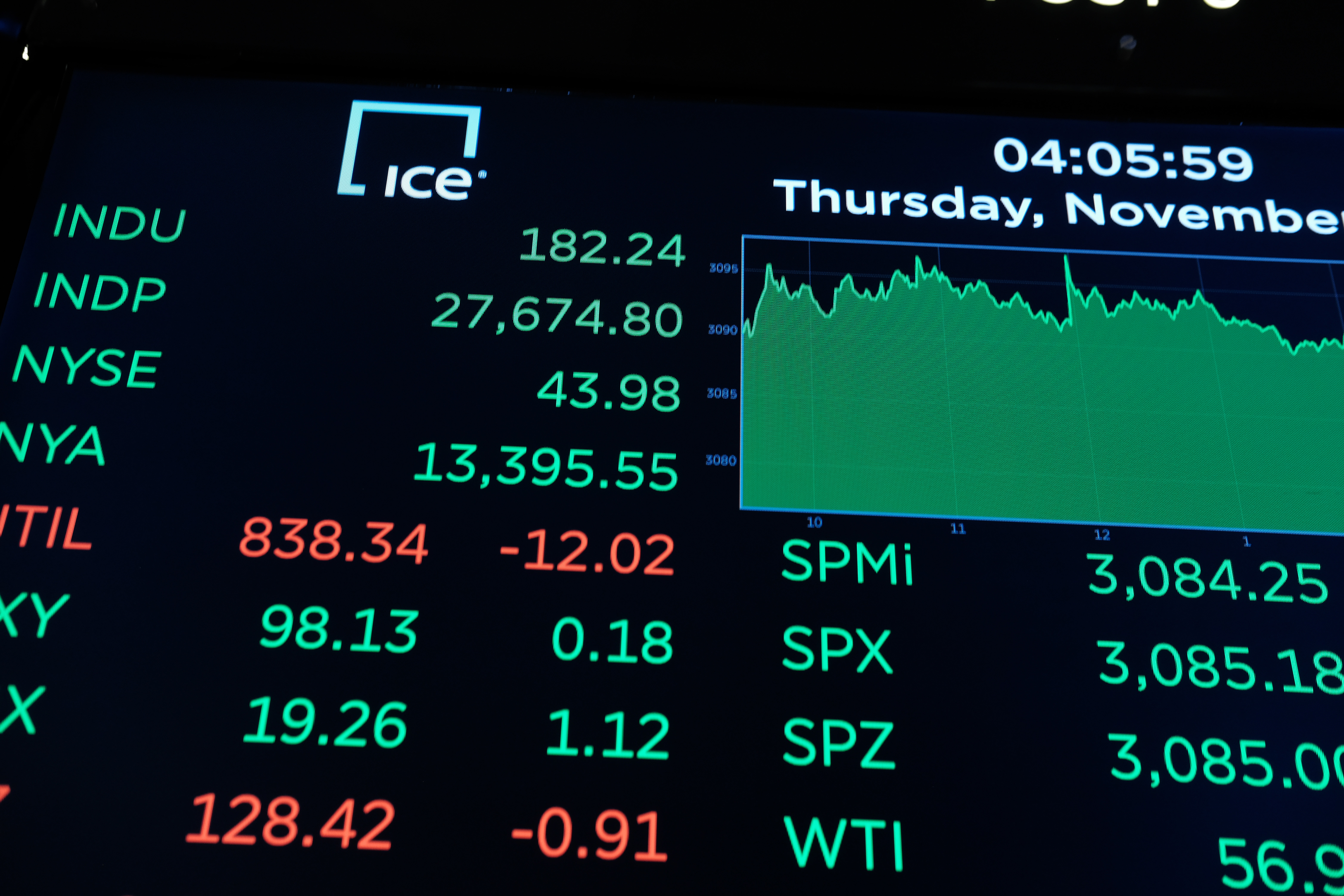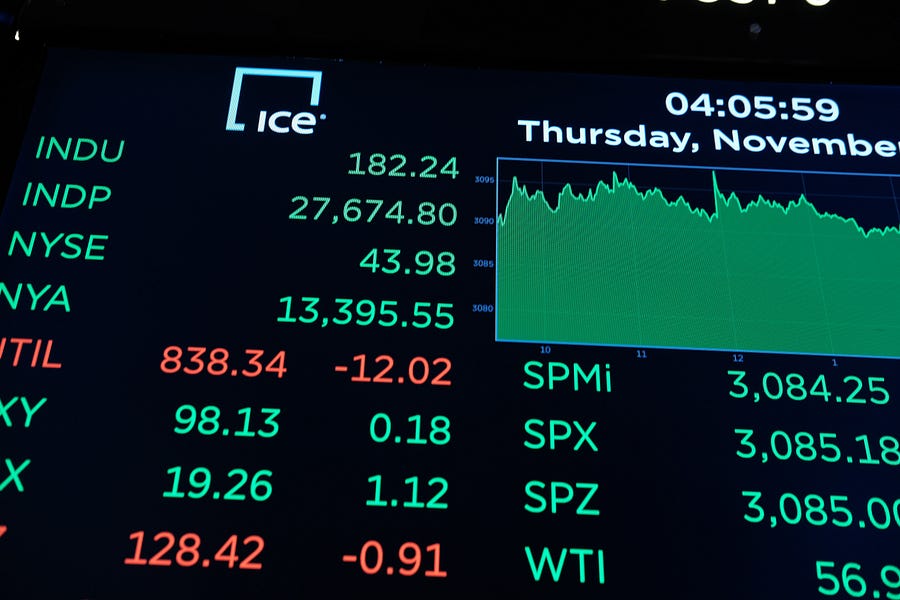Happy Monday! After a barn-burner of a week, things have predictably slowed down a bit heading into the holidays—we’ll keep today’s Morning Dispatch short and sweet. Thank you, readers, for all the support you have shown us these first few months—both financial and otherwise. Getting this project off the ground amid impeachment, Syria, the Democratic primary, USMCA, etc. has been a bit like building a car while driving it down the freeway. We appreciate you coming along for the ride. From all of us here at The Morning Dispatch, we hope you have a wonderful holiday season.
See you again on Friday.
Quick Hits: What You Need to Know
-
Nancy Pelosi and House Democrats have still not sent articles of impeachment over to the Senate to formally kick off President Trump’s trial. Republicans and constitutional scholars alike have met the news with confusion.
-
China is set to lower import tariffs on hundreds of products starting in 2020, as the country faces its weakest economic expansion in 30 years.
-
As the third year of Trump’s presidency draws to a close, he has officially added 187 judges to the federal judiciary; one in every four circuit court judges today is a Trump appointee.
About That Recession

There was a period during the summer where it seemed that the whole pundit class was convinced a recession was just around the corner. The effects of Trump’s trade war with China were spreading. His own advisers had stopped boasting that tariffs would help America’s economy and instead noted grimly that at least they were hurting China worse. Interest rates for long-term Treasury bonds had fallen below those of short-term ones—a phenomenon called an inverted yield curve that has historically been a coal-mine canary for recessions. People were spooked. And some of the president’s critics — in politics and in the media — seemed to be wishing for a recession.
By now, it seems clear the immediate danger, if it existed, has passed. The Federal Reserve, which had been hiking interest rates gradually over the previous few fat years, eased them down again, and Trump began making noises about finding a path to a deal with China.
What does this mean for 2020? For the president’s rivals, of course, it’s meant a tougher economic sell. If a recession seems imminent, the out-party pitch writes itself: all you need are ominous warnings about how bad things might become, if the current leaders are permitted to remain in power. When things seem stable and decent overall, the pitch gets more difficult: you need to convince people things are bad for them right now, and sometimes that doesn’t match the evidence of their senses.
While Trump’s economic agenda hasn’t ushered in the era of off-the-charts growth he himself used to promise, it has made the modest growth we do currently enjoy more resilient and resistant to shocks. A big part of this was deregulation: Trump spent much of 2017 in particular hacking away with a vengeance at the regulatory state. In terms of promoting broad confidence among businesses, the actual content of these regulatory changes was almost beside the point: They were encouraging to businesses mostly because they showed Trump had little interest in piling up new regulations. And then there were the tax cuts that year—which, while denounced by Democrats as a regressive handout to corporations and the wealthy, undeniably helped keep the labor market juiced and wages ticking up.
That doesn’t mean there aren’t sore spots for Democrats to press on, of course. The trade war continues to do a number on the very people Trump apparently intended it to help: the U.S. manufacturing sector, which stalled out early this year and is now actually shedding jobs, and the farmers and ag workers whose votes help ensure Trump was elected. And there are plenty of specific economic anxieties that don’t show up explicitly in the top-level GDP data that many 2020 Democrats are making central parts of their pitches—things like crushing student debt for young adults and underfunded pension funds for workers nearing retirement.
Whether those pitches will prove effective over the next year remains to be seen. But if public polling is to be believed, they’ve got their work cut out for them: More Americans currently think the country’s economic conditions are generally good today than at any point since the early 2000s.
Worth Your Time
-
In the wake of last week’s impeachment vote, Jonathan Martin and Maggie Haberman detail for the New York Times the strength of Donald Trump’s grip on the Republican party, present and future: “To defy Mr. Trump is to invite the president’s wrath, ostracism within the party and a premature end to a career in Republican politics.”
-
Eddie Murphy returned to 30 Rock over the weekend to host Saturday Night Live for the first time since he left the show in 1984 (we highly recommend his Mr. Robinson and Holiday Baking sketches). For The Ringer, Alan Siegel wrote about Murphy’s five-year SNL run in the early 1980s, and how he nearly single-handedly saved the show.
-
This Twitter thread, from Beth Shelburne of WBRC in Birmingham, Alabama, broke our hearts. Willie Simmons, 62, has been behind bars for 38 years after stealing $9 in his mid-20s. He got sober at age 44, and nobody has visited him in prison since his sister died in 2005. If you’d like to send Willie a letter for the holidays:
We Saw Star Wars …
And it—wasn’t terrible! Our expectations had been so thoroughly obliterated by the naysayers on Twitter and Rotten Tomatoes that failing to surpass them would have been all but impossible.
Is it perfect? No, far from it. Many plot points seem rushed and lack explanation. Certain characters’ developments stall out, or regress. The stakes are ultimately not as high as we are led to believe.
But it is a Star Wars movie. There are laser gun fights. There are more lightsaber battles than you can count (if you can count only to, like, six). Old friends make an appearance. John Williams does his thing. And the light and dark sides of the force duke it out for approximately two-and-a-half hours—we’ll let you guess which one wins.
Presented Without Comment
This hurt (one of us) a lot.
Something Fun
Never change, Iowa.
Toeing the Company Line
-
Friday’s G-File took a look at Trump’s bashing of deceased Rep. John Dingell and Rep. Debbie Dingell, his widow, before discussing Richard Jewell—Clint Eastwood’s latest—and how it plays into conservatism’s grievance culture. Give it a read here!
-
David’s Sunday French Press dissected that Christianity Today editorial calling for Trump’s removal from office and helped to explain the divisions within the evangelical movement leading to such divergent opinions on the president.
-
In The Dispatch Fact Check, Declan rebutted the Trump campaign’s erroneous claim that Rep. James Clyburn called for the hanging of the president.
Let Us Know
The American Hockey League Springfield Thunderbirds announced they are changing their name to the Springfield Ice-O-Topes to honor The Simpsons’ 30th anniversary. How does this one-night-only switch compare to similar efforts from other minor league sports teams around the country?
-
When the Mahoning Valley Scrappers became the Mahoning Valley Peppers in Oil
-
When the Wisconsin Timber Rattlers transformed into the Wisconsin Brats
-
When the Delmarva Shorebirds masqueraded as the Delmarva Scrapple
-
When the Aberdeen IronBirds redesigned themselves as the Aberdeen Star-Spangled Banners
Reporting by Declan Garvey (@declanpgarvey), Andrew Egger (@EggerDC), and Steve Hayes (@stephenfhayes).
Photograph of a sign showing closing numbers on the floor of the New York Stock Exchange by Spencer Platt/Getty Images.







Please note that we at The Dispatch hold ourselves, our work, and our commenters to a higher standard than other places on the internet. We welcome comments that foster genuine debate or discussion—including comments critical of us or our work—but responses that include ad hominem attacks on fellow Dispatch members or are intended to stoke fear and anger may be moderated.
With your membership, you only have the ability to comment on The Morning Dispatch articles. Consider upgrading to join the conversation everywhere.